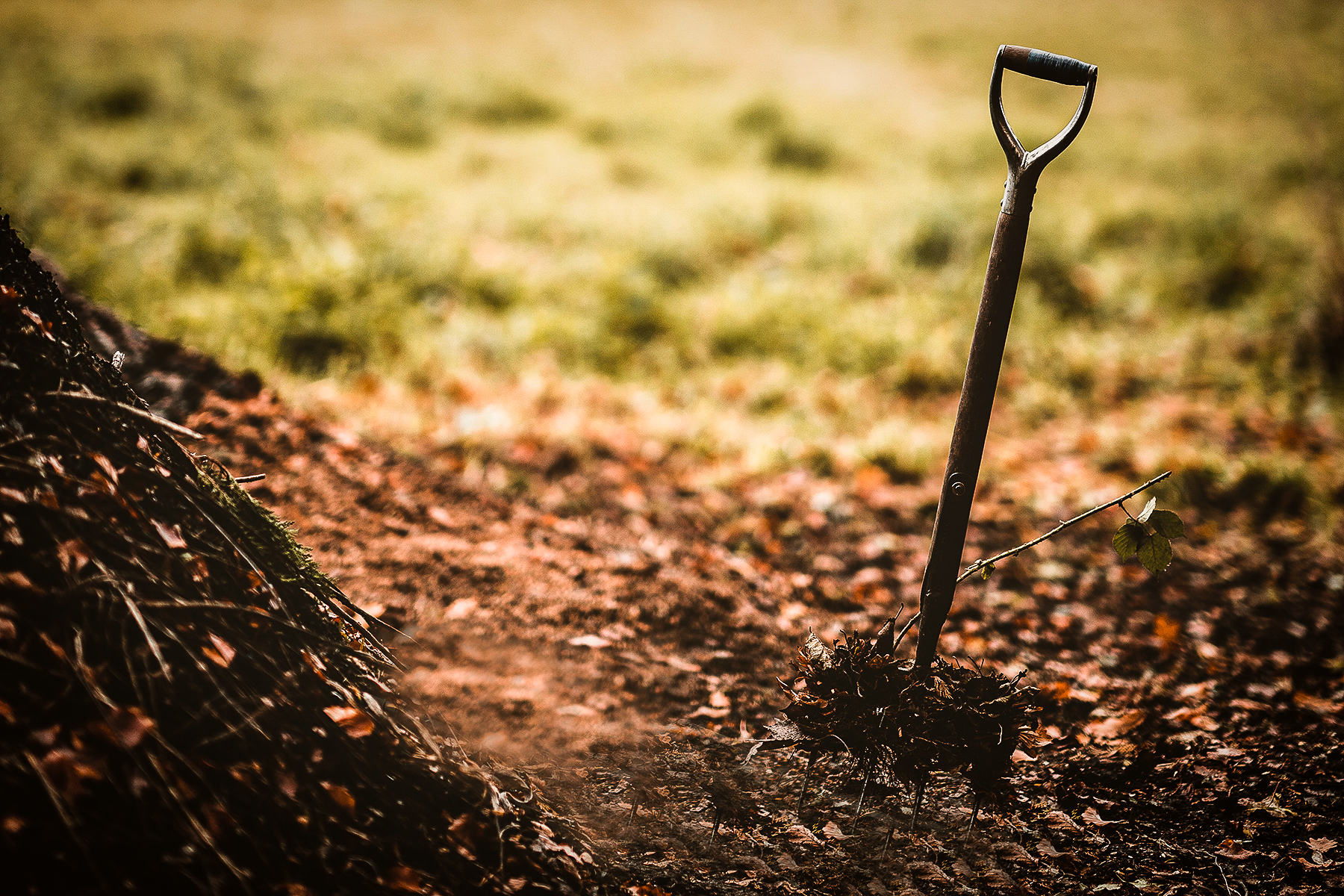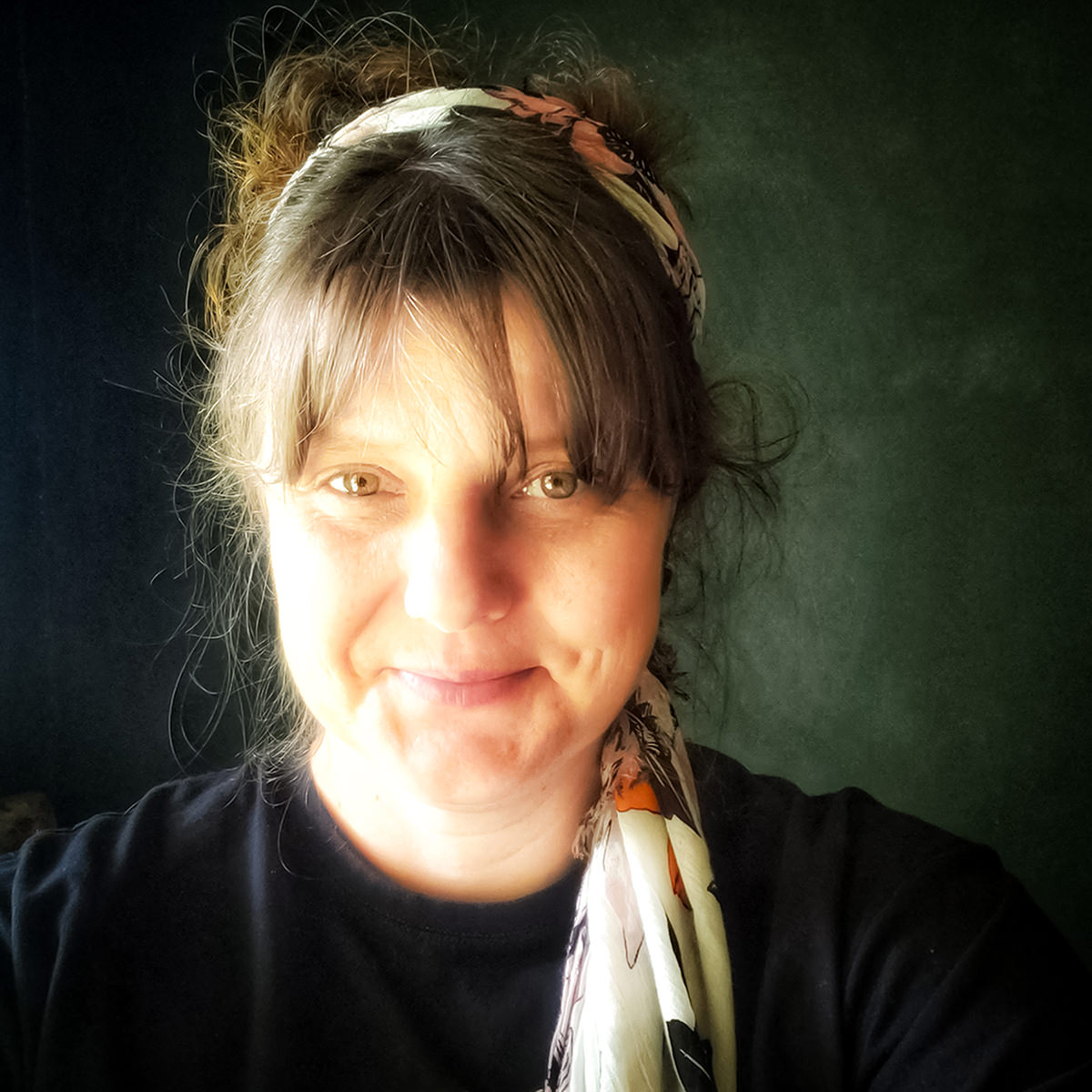It’s digging season.
The casual back patio tomato grower does not understand the above statement, for the extent of his fall gardening lies in pulling out the deceased plant and emptying the pot for storage. But a seasoned gardener knows: autumn is for digging. The best laid plans of every garden begin in the fall, when the temperature drops, the light shifts, and the deciduous trees and overgrown squashes open up to allow us a clearer view. Autumn is renowned as a season of harvest, but we know better: this is the season of cultivating. The best compost made is that which is laid in its pile in fall months, left to decompose under a blanket of snow and keeping a thousand earthworms cozy inside. The ground is never as friendly to spade and fork as on an October morning, and the labor comes with a promise of way less sweat! Every single year, just before winter-proper sets in, I evaluate what yielded, what didn’t, and what I want to change come spring.
In the last twelve months, my own garden has undergone dramatic changes. Open lawn is transformed into a berry garden, replete with blooms to attract pollinators. A soggy bit has been graced with a majestic river birch that we’ve christened Goldberry. She wears a sweet and sassy petticoat of eleven lacy hydrangeas. Norway spruces and crabapples stand guard as welcoming footmen at our front drive. Roses and more hydrangeas have joined Queens Susan and Lucy, the magnolias, in the front yard. We’ve lived here six years now, and I feel like I have finally gained a good understanding of how our home wears each season.
Gardens are defined by soil, latitude, seasons, wild and domesticated animals, neighboring landscapes, and trends, but most of all, they are shaped by gardeners. The land I tend today has been curated for at least two hundred years and carries with it the decisions of many caretakers before me. I can identify, though not by name, the works of a tree lover, a person with a fascination for peonies, an herb gardener, and wildflower enthusiast by their mark left on my bit of earth. Prior to that, it was most likely wild forest and hunting grounds for native animals and American tribespeople. As I move soil from one place to another, adding compost and removing weeds, I wonder if I’m only undoing a previous caretaker’s labor. While their influences abound, today this garden is defined by me and the Head Vinedresser I serve.
![]()
In Genesis 1, the Author tells us that the newborn earth had no form and was empty. But it wasn’t alone; the Spirit was hovering. I can’t help wondering if He was choosing a spot. It’s the first step in any garden and probably the most important. “Where” might be the single most influencing factor in any plot. For us humans, “where” means questions about light and wind, water and roots, soil and snow. I think perhaps those are the very things that the hovering Spirit was meditating over — looking for something special – a place to cultivate.
We look first for the light – how many hours of sunlight and what direction does it aim? God first and foremost speaks light into the world and separates it from darkness. Next, we consider the type of soil, proximity to water, and elevation. God separates land from sea, creating dry ground and boundaries for water. A wise gardener will pay attention to seasonal changes before settling on a plot of land. God does the same thing! He places the sun, moon, and stars to order the seasons. Finally, we will plant. This is the step we all work for, the setting of seed or shrub into the ground we’ve chosen and prepared. This is a good formula the work of cultivating regardless of whether you’re growing nasturtiums or novels — looking for light, finding high ground, setting boundaries, a source of water (or inspiration!), recognizing that everything grows differently in each season, planting seeds.
![]()
In the second beginning of Genesis 11, Noah sends a dove out into a world that is again formless and void, chaotic and disordered. The dove returns after hovering over the waters and finding no rest. A week later, however, the story has a dramatic shift. We don’t really think of it as dramatic because we’ve heard it all our lives, but I can absolutely promise you that to the men and women on that ark for a year with more manure than you or I can imagine, it was dramatic. The dove brings a branch. And not a branch from an enormous Lebanese cedar, which can reach over a hundred feet tall, but from an olive tree, averaging about thirty feet in height. The hovering bird had found land.
Our own world feels once more like chaos, doesn’t it? Is there any such thing as “normal” anymore? The things of this world that once seemed certain, that gave us boundaries and identity for generations are being upturned. The quest for peace and rest seems as distant and hopeless as Frodo’s journey to be free of the Ring. Lest you think I exaggerate, may I humbly remind you that you’re likely reading this on a browser that has several other tabs open? And the chances that you’ve made it through nine-hundred words without your phone prodding you at least once are very, very small.
But take heart, friends. Words like upheaval, upturn, and prod are all part of what cultivating requires. Chaos can be quelled, but it is work to do it. Fortunately, it is not our work.
It is the quieting work of the hovering Spirit, choosing a place, bringing light, separating land and water, planting seeds, and inhabiting ground. He doesn’t necessarily cultivate in the same manner that we do. Sometimes He gently pulls or prods at the small weeds, careful not to disturb young growth, other times there is a wholesale chopping off of roots or tearing open the ground to reveal fresh soil beneath. Those things may not sound so different from how we tend, but the difference lies in the Holy Spirit’s effectiveness and purpose. He never misses His mark, never accidentally prunes more than necessary, never leaves work unfinished. And as to purpose, He comes to inhabit, to dwell, to make what was wild and untamed and without form into a complete, richer, fuller, deeper life than any we’ve ever known. As Isaac Watts so beautifully put it, “He comes to make His blessing flow far as the curse is found.”
![]()
The featured image is courtesy of Annie Spratt.
We give hearty thanks for Annie’s gifts, skills, and generosity.
Second-generation homeschooling mom of five wee snickbuzzards, Jordan Durbin is a maker of humble pottery, fine artist, calligrapher, gardener, pickle maker, baker of all things gluten-inclusive and butter-laden, violinist, vocalist, rabbit raiser, wife of one good man, lover of her blessed Redeemer. She has a Bachelor’s degree in fine art from Grace College in Winona Lake, Indiana. She is an avid coffee drinker, reader, and published children’s book author and illustrator. She aspires to proclaim the resurrection with every moment of her life.
Leave a Reply
A Field Guide to Cultivating ~ Essentials to Cultivating a Whole Life, Rooted in Christ, and Flourishing in Fellowship
Enjoy our gift to you as our Welcome to Cultivating! Discover the purpose of The Cultivating Project, and how you might find a "What, you too?" experience here with this fellowship of makers!


Your statement about chaos is such an important reminder, Jordan. We often take responsibility for the wrong things in this life. Thank you for these beautiful words.
June,
I’m so honored that these words spoke to you. Praying shalom over any chaos in your life today.